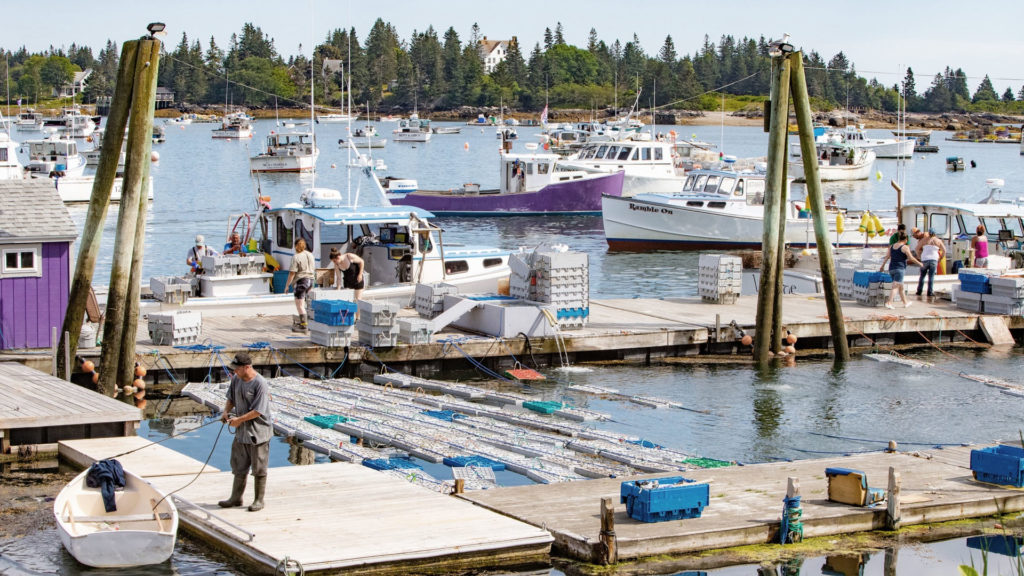ROCKLAND, ME – The Maine Technology Institute (MTI) and FocusMaine recently awarded the Island Institute a three-year, $300,000 contract to serve as program director for SEAMaine, Maine’s Marine Economy Roadmap/Workforce Development Project, a $2 million project to help the state develop an industry-led roadmap and action plan for growth and greater resiliency in Maine’s marine economy. Funded by the U.S. Economic Development Administration, the project was awarded to FocusMaine and MTI, who oversee a steering committee being led by Bill Mook of Mook Sea Farm and Curt Brown of Ready Seafood. Additional steering committee members include the Maine Aquaculture Innovation Center, the Maine Department of Marine Resources, the Maine Coast Fishermen’s Association, the Maine Lobstermen’s Association, the Maine Lobster Dealers Association, and other private and public sector partners.
“We look forward to working with the Island Institute as they assume this leadership role in managing the myriad processes and partners involved,” said Brian Whitney, president of MTI. “Together, industry leaders will create an economic roadmap and workforce development plan for Maine’s marine economy.”
Recognized as one of the world’s richest marine ecosystems, the Gulf of Maine covers more than 5,000 miles of coastline (including islands). Maine’s marine living resources have long been a mainstay of the state’s economy, particularly in rural areas. While lobster remains Maine’s predominant and most well-known export, Maine’s marine living resources economy continues to diversify and now includes fishing, lobstering, aquaculture, life sciences, and value-added processing. Critical supply chain elements like shipping and logistics also support this economy.
In 2016, the marine living resource sector in Maine employed 15,583 workers. Most of the positions include fishermen and related shoreside workers followed by occupations within the supply chain such as processing, transportation, and more.
“Looking to the future, we know Maine’s marine economy will continue to evolve,” said Kim Hamilton, Ph.D., president of FocusMaine. “We need to plan for challenges ahead and take advantage of emerging opportunities to build resiliency.”
Maine’s Marine Economy Roadmap/Workforce Development Project will identify industry needs and opportunities and provide solutions to workforce needs and skills gaps. It will also focus on investments that create a more resilient marine economy for Maine.
With a history rooted in Maine’s fisheries and working waterfronts and an eye on future economic trends, the Island Institute has worked with local lobstermen and aquaculturists to help diversify the state’s fishing industry. Through its aquaculture, small business, education, and leadership initiatives, the nonprofit has focused on strengthening Maine’s coastal and island economies and building workforce opportunities for these communities. The organization is now expanding on this work through partnerships within the state’s business and scientific communities as well.
With over 50 years of cumulative experience in project management and network building and close to 20 years of experience in economic development, the Island Institute brings a highly experienced team of professionals to the Marine Economy Roadmap and Workforce Development Project. The team will be led by Sam Belknap, a third-generation lobsterman with an intimate knowledge of Maine’s marine sectors. Trained as both an anthropologist and a climate scientist, Belknap’s professional work has focused on the intersection of Maine’s marine economy and the impacts of climate change. He will be supported by Susie Arnold, Ph.D., marine scientist, Craig Olson, small business expert at the Island Institute, and Lisa Millette, project lead for the nonprofit’s aquaculture and marine economy work.


